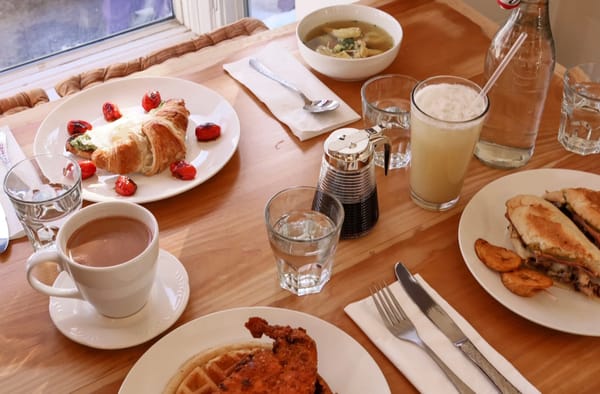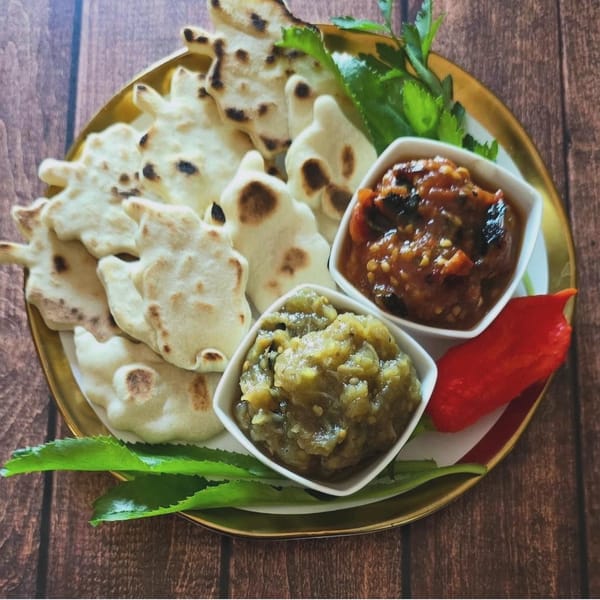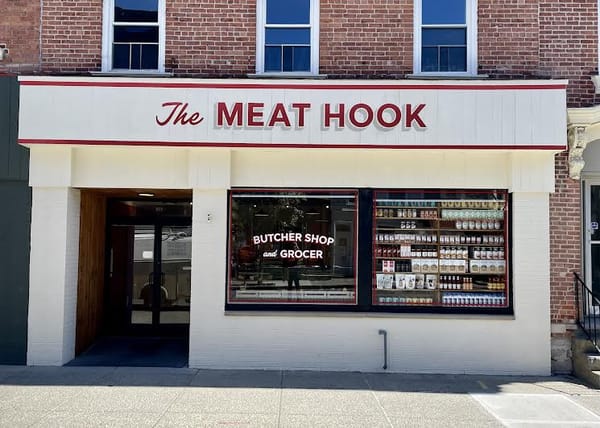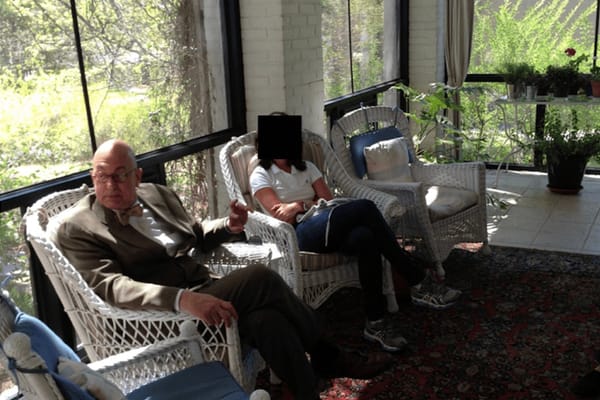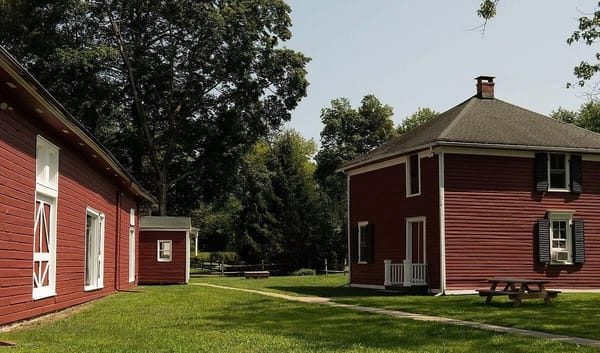
Peter Davies and Mark Scherzer are the owners of Turkana Farms in Germantown, NY. This week Peter writes: A few days after Thanksgiving, a doctor from Washington State left a message on my answering machine: "I saw those turkeys in The New York Times a couple of days ago and wonder if I can talk you guys out of murdering those turkeys for profit," an unfriendly voice growled. The good doctor was, of course, referring to an article on heritage breed turkeys, featuring us, which appeared on the front page of The New York Times business section on Thanksgiving morning. Here we had been reveling in the warm bath of media attention and enjoying the many kudos from our happy customers, and suddenly, out of nowhere, comes this cold splash. Not fair, it seemed, but it did clarifiy my thinking about how we came to farm the way we do. We are committed to preserving breeds of farm animals that are in danger of extinction. Hence our choice of Karakul sheep, Ossabaw pigs, Bourbon Red, Narragansett, Spanish Black, and Royal Palm turkeys, Toulouse geese, Rouen ducks, and a rare but not endangered breed, British White beef cattle. When asked about this commitment, I usually say, off the top of my head: "We realized from the beginning that on such a small scale we would never make much, if any, money, so we decided to, at least, do something good." While this may be true, I think there are even deeper reasons than that. Sometime in the mid-to-late eighties, we were traveling through the countryside of Wales [photo, above]—for me, a return to my childhood home; for Mark, an introduction. As we navigated the narrow, hedgerow-lined lanes, I periodically would see posted at farm gates signs that said something like, "We are preserving heritage breeds of farm animals." At that point, we were New York City dwellers with a country place in Sag Harbor and had no inkling that a farm was in our future, so why I even noticed the signs, and why the memory of them stuck with me are interesting questions. A partial answer may be that I have, since childhood, been fascinated with history and historic things, which has led me to become an avid preservationist. But until we started farming, my concern was mainly with historic buildings and neighborhoods. Mark and I, in our Sag Harbor days, restored and preserved our historic house, battled to preserve endangered historic village neighborhoods, and worked to protect endangered wetlands and woodlands. So, perhaps, preserving heritage animals is just one more manifestation of this instinct or value system. But an even deeper answer may have its roots in Celtic culture. In Welsh and probably other Celtic cultures, there is a deep pantheism—the sense that God (a pre-Christian one) resides in all of life, be it plants, animals, birds, or fish. I think this could be the source of the British passion for animals and the concern for their humane treatment; also, possibly, for some of the underpinnings of the Romantic Movement—consider the lengthy rambles Wordsworth, his sister Dorothy, and Coleridge took through the Welsh countryside. When we were on the threshold of farming about ten years ago, we learned, through groups such as Tom Gardner's New England Heritage Breeds Association, how endangered so many of our older farm breeds are and how important it is to preserve them. We became aware of the need to maintain for future generations a large and varied gene pool of farm livestock, and how superior the older, varied endangered breeds are to the few, engineered breeds dominating agribusiness today. If I ever return the good doctor's hostile phone message, perhaps I should reiterate some of the above and also point out that, since zoos have proven to not be an effective way to save endangered breeds, it really comes down to a choice between allowing them to become extinct, or creating a market for them to ensure their survival. But he probably wouldn't buy the sad reality that we can only save them by eating them. So maybe I should just be flip and answer his "...murdering those turkeys for profit." remark with: "Profit?? Pray tell, good doctor, what 'profit' are you talking about?" —Peter Davies

